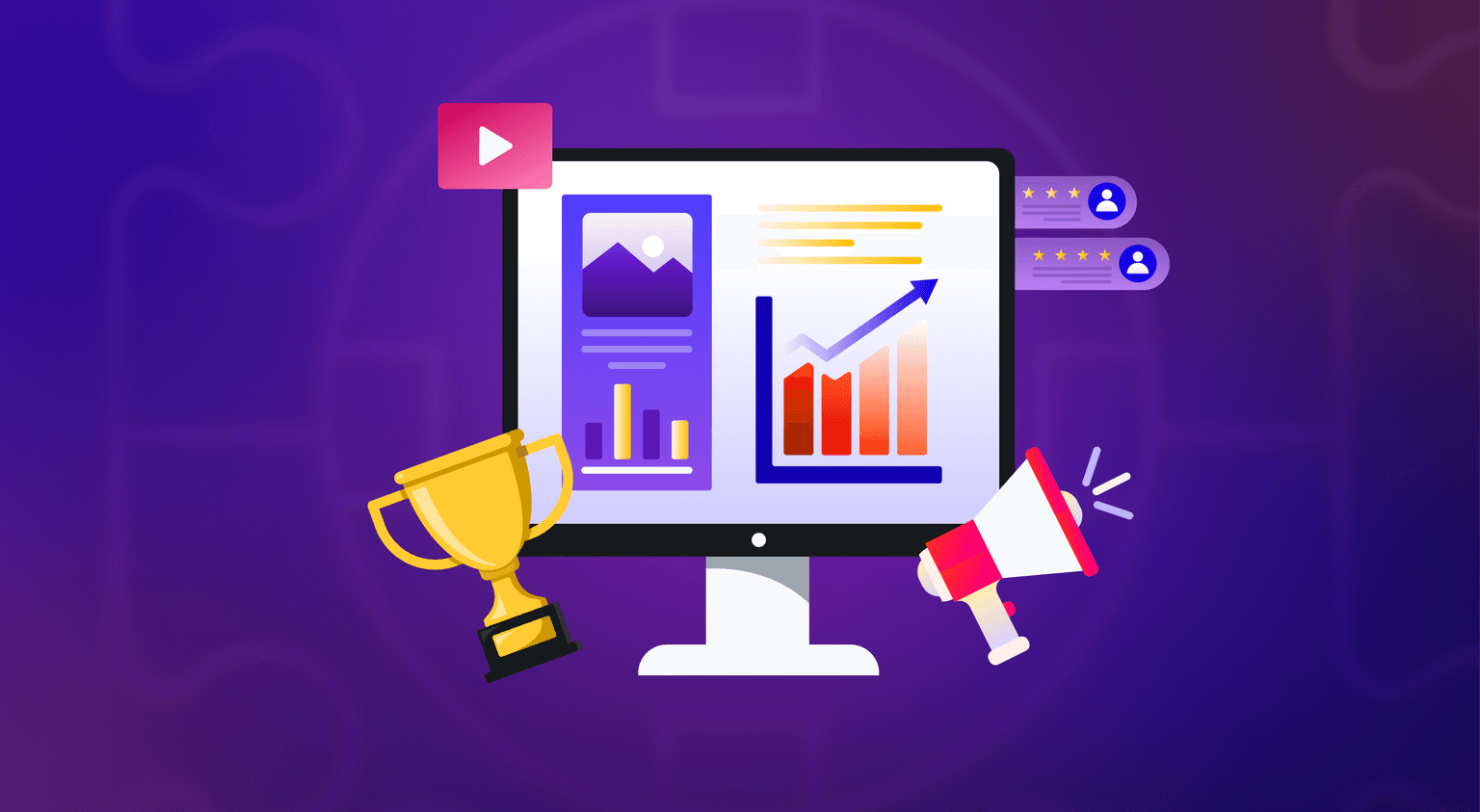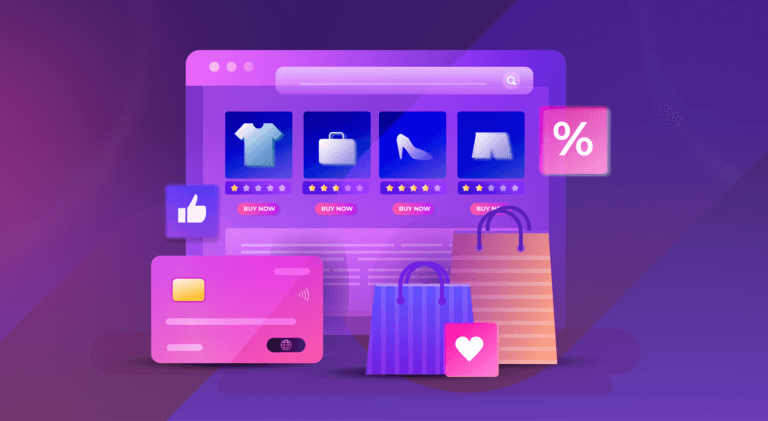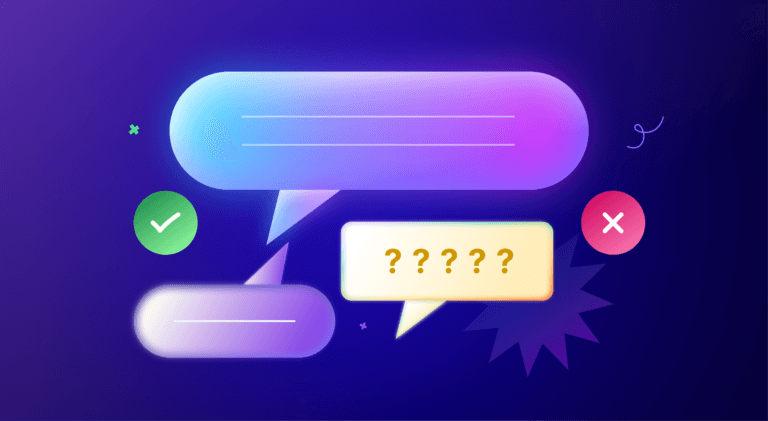Understanding B2B and B2C Marketing Differences [+Examples]
![Understanding B2B and B2C Marketing Differences [+Examples]](/_next/image/?url=https%3A%2F%2Fwordpress.peppercontent.io%2Fwp-content%2Fuploads%2F2022%2F02%2FDifference-between-B2B-B2C-Marketing-w_-Examples.png&w=1536&q=75)
Table of Contents
- Defining B2B and B2C marketing
- What Does B2B Marketing Mean?
- What Does B2C Marketing Mean?
- What Are the Key Differences Between B2B and B2C Marketing?
- B2B Marketing Examples
- B2C Marketing Examples
- Key Takeaways
- Conclusion
- FAQs
Identifying the right marketing strategy for your business is a crucial step. With the right marketing strategy in place, you can boost your sales and build a recognizable brand. But in order to do this, you must broaden your marketing knowledge, and a key aspect of this is to understand the B2B and B2C marketing difference. This blog will serve as a guide explaining the fundamental difference between B2B and B2C marketing with examples.

Let’s say you are booking a suite for a holiday. Although you have a budget, it is easy to get overwhelmed by choices and even go slightly (if not a lot) over your budget.
While making such a booking, your thought process will be vastly different from if you are purchasing a software solution for your business. After all, there is nothing romantic about selecting software, and you aren’t exactly going to get carried away with it.
This is why B2B and B2C marketing are so profoundly different. And understanding these differences is important to market your brand the right way and attain your business goals.

Defining B2B and B2C Marketing
To begin with, let’s find out what the acronyms mean.
- B2B marketing stands for business to business. It applies to brands that operate in niche markets, addressing different problems for other businesses.
- B2C stands for business to consumer. It is about selling products to the general public on a regular basis.
At their core, both B2B and B2C marketing campaigns share identical best practices, such as retargeting or ad testing. Also, the end goal of both campaigns is to boost sales and revenue. However, there are some crucial differences between the two. An understanding of the key differences between B2B and B2C marketing can help you improve your campaigns significantly.
What Does B2B Marketing Mean?
B2B marketing is a tactic used by businesses to sell products or services to other businesses. More explicitly, they sell to the decision-makers in any specific business. It can include anything from business software and office stationery to desk furniture and more. In B2B marketing, strategies are geared towards promoting products to businesses for use in the production of goods, for resale to end customers, or for general supply operations.
An excellent example of an eCommerce giant using B2B marketing strategies is Alibaba. The China-based company has over 18 million buyers and sellers. The platform has a vast product range, making it ideal for small businesses to source their supplies from manufacturers and retailers.
What Does B2C Marketing Mean?
B2C marketing refers to marketing strategies with which a business advertises its products and services directly to the general public. These businesses use B2C marketing to sell products that address the immediate needs of the customers in their everyday life.
Essentially, B2C marketing campaigns work by invoking an emotional response from the customer. Hence, ads that appeal the most to the customers often convert better into sales.
What Are the Key Differences Between B2B and B2C Marketing
B2B-B2C marketing strategies are centered on attracting two distinct audiences. Let us look at a few B2B-B2C marketing differences to help you understand each concept better.
1. Sales volumes
B2C marketing campaigns address a large audience. These campaigns can reach anyone interested in a product, even if they aren’t the envisioned buyer. For instance, a product proposed for children may also appeal to a teenager or an adult, persuading them to make a purchase.
While B2C companies can cast an extensive net and still achieve a good ROI on their marketing campaigns, B2B brands don’t have the same advantage. And this is because B2B businesses are meant to offer products to other businesses. And we all know that there are much fewer businesses than there are people in any demographic.
2. Customer relationships
B2B businesses majorly operate in niche markets. Thus, B2B marketing campaigns emphasize building long-term customer relationships. They aim to earn customer faith through proven business practices that help them build their brand and gain repeat business and referrals.
On the other hand, B2C marketing emphasizes transactional relationships with customers. The strategy is to effectively push the product in front of the potential users at the fastest possible rate.
3. Emotion vs. logic
This is one of the most significant B2B and B2C differences. B2C campaigns aim to connect with the customers on an emotional level, compelling them to buy. Thus, their content is often more fun and enjoyable.

But for B2B marketers, the campaigns are all about moving their leads to the next stage of the sales funnel. For instance, a B2B marketing campaign could be anything, from offering a free subscription for a month to set up a free demonstration.
Also, the need for expertise and efficiency is much higher among B2B audiences as compared to the B2C consumer group. Thus, these campaigns are not as much about emotions as they are about logic.
4. Decision-making process
In a B2B scenario, the decision to purchase a product or service is much more complex, detailed, and time-consuming. Unlike B2C marketing, it is not an impulsive decision and is based on the needs and budget of a business.
Often, B2B marketing involves rational motivations and showcasing the positive aspects of a business, as compared to its competitors. In B2C marketing, promotions and powerful advertisements simplify the decision-making process of the consumers.
Now that you have understood the basic B2B and B2C marketing differences, let us look at some examples of each. These marketing campaign examples from leading B2B and B2C companies will demonstrate how your marketing copy must be succinct, to the point, and well-balanced to entice the target audience.
B2B Marketing Examples
1. Salesforce
Salesforce is among the leading customer relationship management (CRM) solutions. The company that now boasts over 150,000 users does a great job at launching compelling B2B marketing campaigns. One look at their website tells you that they have nailed it! In 2019, it launched a campaign titled “We bring companies and customers together.” And this reiterates their message that Salesforce is here to help you foster better and stronger customer relationships.

2. Dropbox Business
Dropbox is a well-known file hosting service provider. In 2017, the company expanded its scope to businesses in the marketing domain. It introduced Marketing Dynamix as a way to enable marketers to streamline team activities and boost productivity. It is essentially a personality development test for marketers.
The highlight of the campaign was the personality evaluation tool. Leveraging the popularity of personality tests, it allowed marketers to better understand their teams and improve their processes with that knowledge.

B2C Marketing Examples
1. Spotify
Spotify, the popular music streaming platform, aces B2C marketing by leveraging personalization. The company efficiently demonstrates that personalization is no longer just restricted to email marketing. It curates customized playlists under “Discover Weekly” for its users, based on their song preferences. Last year, it presented every user with the Spotify Wrapped microsite, telling them about their annual music habits.

2. The North Face
This is another example to understand B2B and B2C differences. The B2C brand evokes a feeling of trust and confidence in the users through its marketing copy that reads, “Got Your Back.” This makes the message not just relatable, but also personalized. Lastly, their images are on point, showing urbanites flaunting their uber-chic North Face backpacks.


Key Takeaways
- B2B marketing refers to marketing strategies wherein a company sells products or services to other businesses.
- B2C marketing is where a company promotes its offers to individual people.
- There are some key differences between B2B and B2C marketing strategies and sales processes. A marketer must have a proper understanding of the two to create a high-performing strategy.
- B2B businesses focus on building long-term customer relationships, whereas B2C companies emphasize driving short-term value at a competitive rate.
- B2B businesses are focused on lead generation, whereas B2C businesses want to establish a solid brand to sell more products.
- When it comes to purchasing decisions, B2B buying is planned and logical, whereas B2C buying is emotion-driven.
Conclusion
As a digital marketer, you must understand the B2B and B2C marketing differences. Once you have that in place, you can easily take advantage of strategies that are exclusively applicable to B2B or B2C businesses. Consequently, you can ramp up lead generation as well as revenue for your business.
FAQs
B2B marketers sell their business offerings to other businesses. All their marketing efforts are aimed at a group of professionals who make purchase decisions on behalf of companies. B2C marketers, on the other hand, market their offerings directly to the consumer.
Some examples of B2B marketing include Salesforce, Alibaba, Dropbox Business, McKesson, Atlassian, etc.
Amazon is among the leading eCommerce giants that operate as a B2C business.
Selling to a B2B market is much harder than selling to consumers. Several B2B business owners try to apply B2C marketing tactics that fall flat. It is important to understand the difference between B2B and B2C buyer behavior to truly succeed.
Latest Blogs
Learn how to rank on AI search engines like ChatGPT, Perplexity, and Gemini by optimizing your content for authority, structure, and relevance. Stay ahead in AI-driven search with this strategic guide.
Explore the best healthcare SEO services for your medical practice. Improve online visibility and effectively reach more patients in need of your services.
Discover top social media agencies specializing in banking solutions, enhancing financial services and driving engagement.
Get your hands on the latest news!
Similar Posts

Content Marketing
4 mins read
11 Best B2B Content Marketing Agencies for B2B Companies in 2024

Content Marketing
5 mins read
Top ecommerce Marketing Agencies with Proven Strategies for 2024

Content Marketing
5 mins read